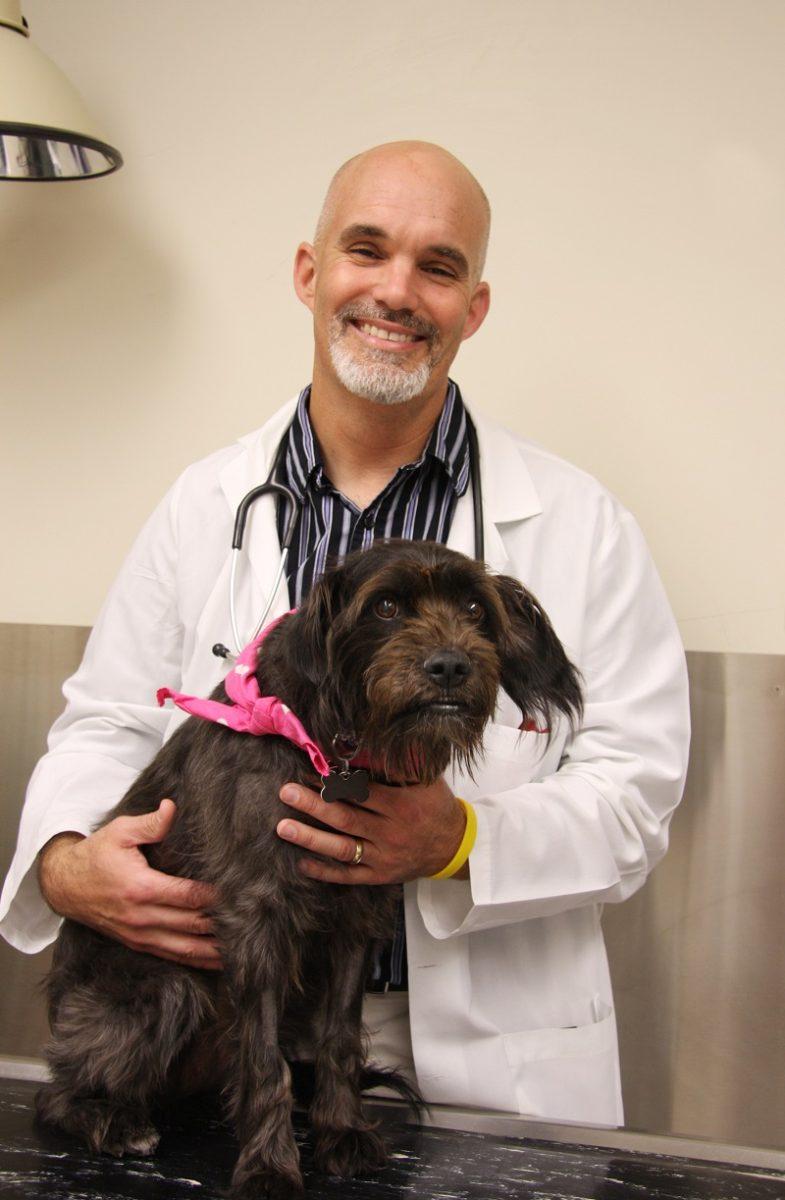MU faculty members have been busy researching a range of topics over the past year. Looking into topics from bone cancer in dogs to on-again, off-again relationships, researchers have made strides in a number of fields. Here are five of the many discoveries that researchers have made over the 2018-2019 school year.
####Bone cancer in dogs####
Osteosarcoma is a type of bone cancer seen in both humans and dogs, though it is much more common in dogs, affecting over 10,000 dogs a year. Jeffrey Bryan, veterinary oncologist and directory of the Comparative Oncology, Radiobiology and Epigenetics Laboratory, led clinical trials to test using precision medicine in affected dogs.
This research was presented in the Veterinary Cancer Society Conference in October 2018 and the Paws for a Cure Research Symposium in November 2018.
The medicine is a vaccine made from the dog’s own tumor cells. Dogs treated with the medicine had a 50% survival rate, compared to a similar group treated with chemotherapy that had a 10% survival rate. The treatment is currently available for dogs with osteosarcoma, and it is hoped that the precision treatment can later be applied to humans.
“This is the first time I’ve gotten to see a process go from concept all the way to commercial application,” Bryan said in a previous interview with The Maneater. “That’s a really rewarding sense to feel that we had a large role in making something available that is going to benefit a lot of dogs, and down the road, I think a lot of kids too.”
####On-again, off-again relationships####
Kale Monk, assistant professor of human development and family science, conducted research into how being in an on-again, off-again relationship can put people at risk of negative mental health effects. Monk and his co-researchers surveyed 545 people in relationships to find out about their relationships and their mental well-being.
This research was published in Family Relations, an online journal, in July 2018.
“As expected, we found that a pattern of breaking up and getting back together with the same partner, what we refer to as ‘relationship cycling,’ was associated with increased symptoms of depression and anxiety,” Monk said in a previous interview with The Maneater.
Monk hoped that these findings would be helpful and relevant for not only those in the MU community, but on a broader scale. An estimated 60% of adults have been in on-again off-again relationships according to an MU News Bureau brief from August.
####Testing glucose levels####
For those with diabetes, testing their glucose levels involves pricking themselves, a process that can lead to pain or even infection. Researcher Anandhi Upendran, director of biomedical innovations at MU School of Medicine’s Institute for Clinical and Translational Science, worked with researchers from the Massachusetts Institute of Technology to create a device that tests glucose levels without pricking.
Rather than fingertip pricking, the device uses a non-invasive laser to test glucose levels. After the volunteer study, which was published in July 2018, the device will go through clinical trials, and if these are successful, FDA testing.
“We recruited human volunteers for the study and made sure that the glucose measurement values were best correlated with that of the fingertip measurement that is regularly used,” Upendran said in a previous interview with The Maneater.
####Political polarization and social media####
Michael Kearney, assistant professor in the MU School of Journalism with a joint employment in the Informatics Institute, researched to what extent Twitter users would become polarized leading up to the 2016 election. His research was published in the peer-reviewed journal New Media & Society in January.
Using software that he developed himself, called “rtweet,” Kearney followed 3,000 Republican partisan, Democrat partisan and nonpartisan users to see if their user networks, or the people that they followed, became more polarized over the seven months leading up to the election.
While Kearney found that the partisans became more partisan over time, the uninvolved users continued to stay out of politics, indicating that the view of polarization presented on social media may be skewed.
“If you were to imagine every user on Twitter entering a political conversation, and then you were to imagine the actual political conversation that occurs on Twitter, the latter seems a lot more polarized because the only people in that conversation are the partisans,” Kearney said in a previous interview with The Maneater. “If everyone were in the conversation, you would have a lot more people expressing uncertainty, not really sure, or maybe ambivalent.”
####Reengineered Discharge####
When a patient leaves from a hospital stay, the process in which they are discharged can largely impact whether or not the patient is re-hospitalized.
Lori Popejoy, an associate professor at Sinclair School of Nursing, conducted research to adapt Re-engineered Discharge, a widely used discharge process in hospitals, to work in nursing homes. This research was published in Clinical Nursing Research in December 2018.
The RED process emphasizes communicating necessary information to a primary provider, preparing medications and scheduling future appointments to check in with the patient. In adapting this process to nursing homes, Popejoy considered the unique needs of nursing home patients, like the need to communicate openly with the patient’s family since they will often be the ones to give care at home.
“Health care is used by people when they need it,” Popejoy said in a previous interview with The Maneater. “The better we can inform what they need to do to take care of themselves, so they don’t have to come back to the hospital. If we do our jobs well, we work ourselves out of the jobs when they don’t actually need us.”
_Edited by Emily Wolf | [email protected]_














